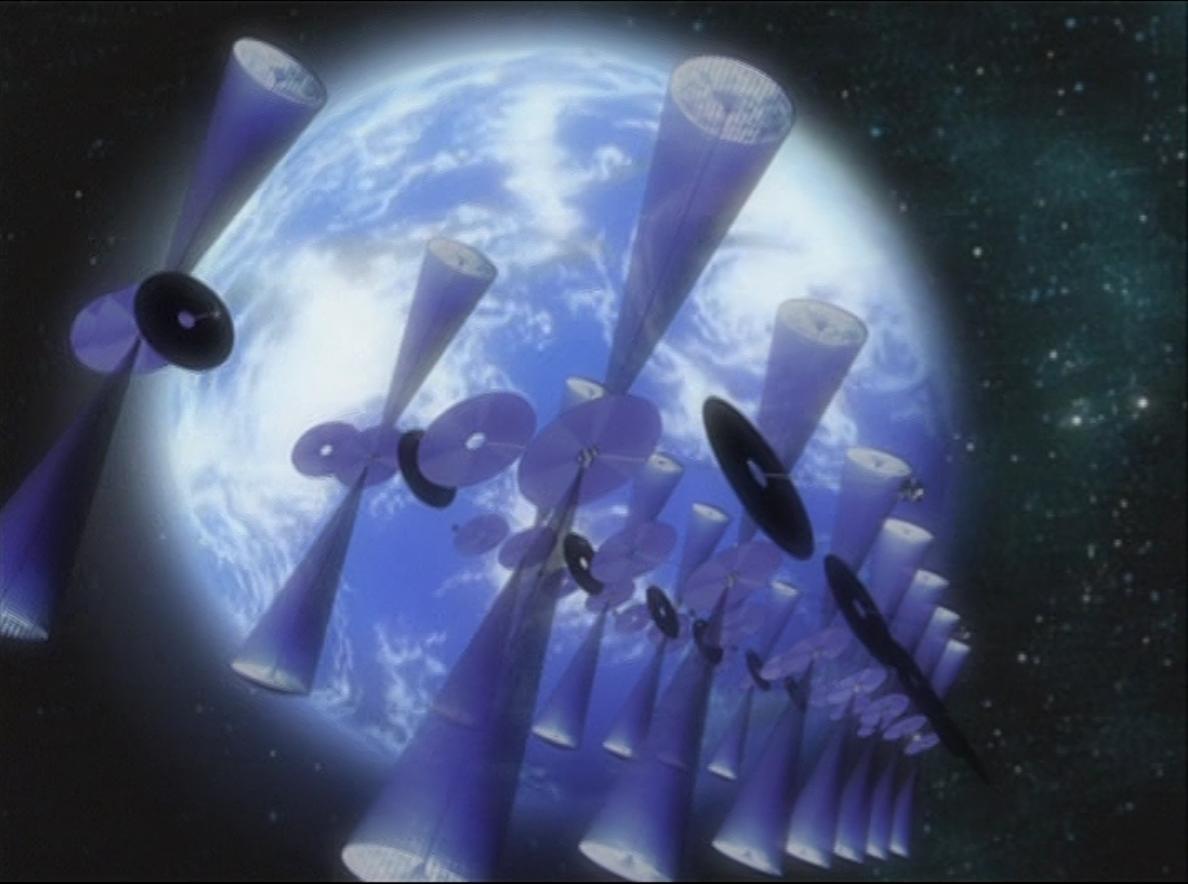First I tell what I
don't like.
The most boring way to do sci-fi is the basic spaceships here spaceships there thing. My interest gets lower as soon as you bring other space civilizations in it. I got my share of it in the original Star Wars trilogy and that was enough for me.
It bores me how many times these other alien species seem to be somehow based on how life has formed in Earth. They are often just creatures with different random things mutated together. Someone might have a rat face and some might have an elephat trunk or some have googly eyes or whatever "deformations" they might come up with.
Space guns? Bleh. Not interested.
No,
give me some metaphysical shit and I'm game.
Hell dimensions are great. The Doctor Who episode where the Doctor finds Satan in space was fantastic. Not really "hell
dimension" thing but still!
Now, along with the hell dimension metaphysical stuff I always love these concepts, no matter what:
-Time travel. Now, personally I don't believe that time travel is even theoretically possible but I love the idea and stuff like that always entertains me (except
The Time Traveller AKA. The Next One from 1984 that really bored the hell out of me.
The Finnish VHS release has a cool cover but sadly the movie was everything but that.)
-Having to live the same day over and over again. I love that stuff. I love Groundhog Day. I love Edge of Tomorrow. I liked Repeaters quite a bit. I have this one horror film on DVD where a woman has to live the day she gets murdered over and over again but I haven't watched it yet.
-Entering into another dimension is cool too. Add dreams being the other dimension to that and oh boy, I will enjoy watching that shit.
(I recall The Outer Limits had this one episode where someone went between two realities and she/he always thought the other dimension she/he was previously in was just a dream and the one she/he is right now is the real one - or something like that)
-People living in between life and death. I even loved this z grade Joe Estevez movie called Soultaker from 1990. It's one of my childhood favorites.
-People being somewhere and suddenly see copies of themselves going around. I absolutely loved Coherence. Triangle was great too. I'm currently waiting for a movie called +1 (AKA. Party Invaders) to arrive on mail. I think it's supposed to have something like that but I've tried to avoid getting any more information about it before I've watched it.
-Some weird shit happening in one room. I love the one room movies so much. Especially if there is some sort of weird scifi thing going on. For example Circle was very entertaining for me. I count Cube as a "one room movie" too.
If you can put the "I woke up and didn't know where I was and how I got there, and I have completely lost my memory" trope in any of these, it's the perfect thing for me right there.





